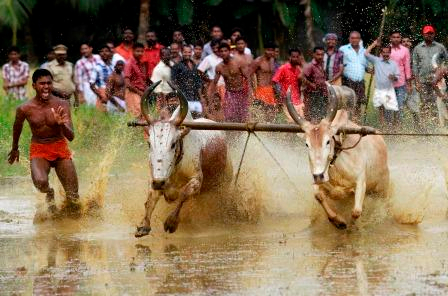
Generally smart and self-aware, cost-conscious but not stingy, eager to learn new things and adventurous, collective-minded but also looking for individuality, and reliant on their own knowledge and opinion rather than on travel guides, millennials across the world present a real challenge for the travel industry.
“They are disrupting the sector,” Marti W. Grimminck, social entrepreneur, creative marketer, veteran traveller and founder of International Connector, which works with companies aiming to attract millennials, says in a recent blog post. “Why book a bed in a hostel when you can [get one] in someone’s private luxury apartment? Why use a guide book when you can go online and have one automatically created for you based on your social network?”
We share everything
While this is a worldwide phenomenon, it is more pertinent to India, where the sheer number of well-educated millennials is turning the country’s $135-billion (Dh495.8 billion) tourism and hospitality industry upside down. There are now more than 150 million Indians in this category; they account for almost a third of the economically active workforce and nearly a quarter of domestic business travellers, according to the Indian branch of the Global Business Travel Association.
There is a phenomenon among millennials that Dr Bino Paul, Professor at the Tata Institute of Social Sciences in Mumbai, calls “collective individualism”. It means that this generation is “intensely and determinedly individual in the way they obtain and use information, make choices and reach opinions”, Dr Paul said in a recent panel event on the topic in Mumbai organised by Titan.
He added that “they are, simultaneously, the most collective generation on earth, sharing everything from activities to opinions and constantly seek endorsement for the same”.
This explains the success of no-frills lodging chains such as Tune Hotels, India’s home-grown brand Ginger as well as others like Lemon Tree, Keys, Fern and Sarovar. Millennials are attracted to standardised and easy-to-use products at hotels such as automated check-in kiosks, credit-card payment facilities, TV checkouts and room key cards that also can be used on vending machines or to access the gym. At the same time, they like to socialise in dedicated places or collective working spaces, and, of course, expect to be connected all the time, which makes free Wi-Fi a priority.
In the zone
Vikram Ahuja, Founder of Bengaluru-based Byond Travel, highlights another trend. “Travel is not about ticking off destinations on a checklist any more,” Times of India quotes him as saying.
“The new traveller demands more immersion and authentic — not touristy — experiences.”
Nikhil Ganju, Country Manager of TripAdvisor India, adds, “Technology will continue to make further disruptions. This will dovetail into the existing trend of immersive local travel and discreet travellers, as they choose unique accommodations and experiences.”







